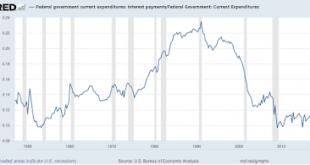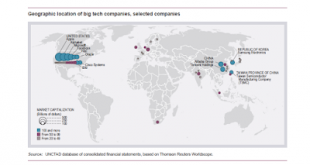[unable to retrieve full-text content]The United States emerged in the 20th century after two world wars as the world’s sole superpower. It further cemented its political and economic hegemony with the collapse of the Soviet Union. But like all empires throughout history, the American empire has a finite half-life, and its final decline is in full view. For some […] The post The end of the “American Century” appeared first on Angry Bear.
Read More »The economic and social consequences of the war on Europe and Italy
By Sergio CesarattoWith a certain pride I remember having already mentioned for some years, within the framework of my economic courses, political realism in international relations and International Political Economy. I did so in academic contexts in which an uncritical Europeanism based on liberal thinking prevailed (and prevails) according to which the world is divided into good and bad. The book, which I suggested for reading to my students (Sorensen 2005), published in Italian by...
Read More »Blog Moving to Substack (and first post)
"Where is Everybody?"The blog will continue here for announcements, messages and links to more substantive pieces. But those will be posted from now on at Substack. I might also post videos in another platform. But more on that later. Link for first post (on whether the US is a failed State, something that got some traction during the pandemic, particularly in the aftermath of the January 6 riot) here.
Read More »The US and Russia: beware of Neocons and liberals preaching democracy promotion
By Thomas Palley (guest blogger)Every week my e-mail box receives a steady stream of articles aimed at cultivating public animus to Russia. The articles are always wrapped in a narrative in which Russia is a threat to democracy in Ukraine, Eastern Europe, and elsewhere. The effect is to create public support for hardline action (economic and/or military) against Russia.The insidious underside of this campaign is it paves the way for a scenario in which Ukraine provokes Russia, thereby...
Read More »The Biden administration should ignore the debt ceiling
The administration run excessive budget deficits, and accumulated too much debt in the face of successive economic crises. As a result, it was forced to compromise politically in order to avoid a catastrophic default, and the subsequent political crisis brought about chaos, and the collapse of the established institutions. Of course, this is not a cautionary tale about the United States. It is a description of the economic crisis that led to the French Revolution.But in spite of the...
Read More »Capitalism Alone Against Itself: Liberal Democratic versus Political Capitalism
I finished Branko Milanovic's thought provoking Capitalism Alone this summer. But I haven't had much time to write on the blog, as you might have noticed. This is certainly not a review, and I would definitely suggest that you go and buy the book as soon as you can and read it. It is a serious discussion of the future of capitalism, that word that, as Heilbroner often reminded us, was at the center of the discipline, but seldom discussed openly by economists. He cited, if memory doesn't fail...
Read More »Argentina and the IMF
Alberto Fernández, who will assume as the next president in less than two weeks, has said he will not accept the next tranche of US$ 11billion that were part of the US$ 57 billion deal signed by the outgoing Macri administration. Many progressives see this as a good sign, in particular given the history of the IMF with Argentina. I've emphasized, against a lot of heterodox discussion on the subject, that the IMF remains essentially unchanged when it comes to policy prescriptions. So I...
Read More »Financialization and the low burden of public debt
Financialization is a fuzzy concept. There are many definitions, and none is clear cut, at least to characterize the changes of the last 40 years or so, which is the period most authors associate with financialization. I'm not suggesting it's not a useful concept though.* In some sense, financialization refers to the last phase in the capitalist system (even if there are ways in which one might argue that capitalism was always financialized). At any rate, going to the point I wanted...
Read More »US technological hegemony
Where the Digital Things Are I have suggested for a while here (this entry from May 2011) that deindustrialization in the US has not meant a decline in technological hegemony. Consider big tech digital firms in that respect. From the new Trade and Development Report: The widening gaps across firms have been particularly marked in the digital world. Of the top 25 big tech firms (in terms of market capitalization) 14 are based in the United States, 3 in the European Union, 3 in China, 4...
Read More »The Latin American Crisis
Downhill I have not written on the problems in the region for a while now (last stuff that is more comprehensive here in the talk at Keene, for example), in part, because the whole theme is a bit depressing (more recently the Honduras crisis, and the return of the right in Chile). As I have noted before, there is no doubt that the collapse of commodity prices has played a significant role in the downturn in the region, but it is also true that a lot of the problems are political in...
Read More » Heterodox
Heterodox







